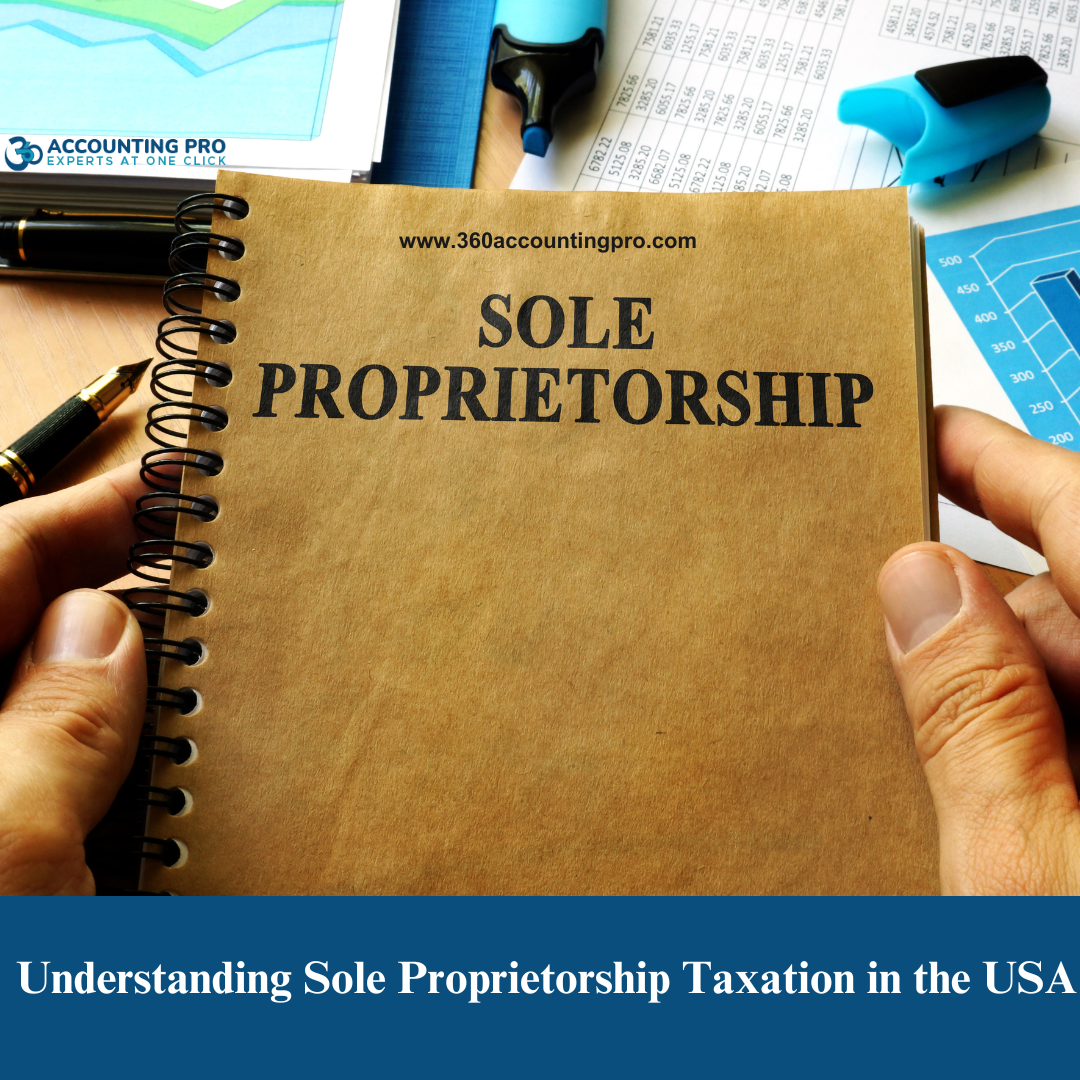

15-02-25
A sole proprietorship is the simplest and most common form of business ownership in the United States. It is an unincorporated business owned and operated by a single individual. Unlike corporations or partnerships, there is no legal distinction between the business and the owner. This means the owner is personally responsible for all debts and liabilities but also enjoys complete control over business decisions.
Since a sole proprietorship is not considered a separate legal entity, all business income and expenses are reported on the owner’s personal tax return. While this simplifies the tax filing process, it also requires careful financial planning and compliance with IRS regulations.
Sole proprietors must pay several types of taxes, including:
Sole proprietors report business income as part of their personal income. Profits or losses are included on the individual’s tax return (Form 1040) and taxed at the personal income tax rate.
Since sole proprietors do not have employers withholding Social Security and Medicare taxes, they must pay self-employment tax (SE tax). This tax covers Social Security and Medicare contributions and is calculated on Schedule SE (Form 1040). The self-employment tax rate is 15.3% (12.4% for Social Security and 2.9% for Medicare).
If a sole proprietor hires employees, they are responsible for:
Payroll taxes (Social Security, Medicare, and Unemployment taxes)
Withholding federal and state income taxes from employee wages
Issuing W-2 forms at year-end
If selling taxable goods or services, a sole proprietor must collect and remit sales tax to the appropriate state agency. Sales tax rates and requirements vary by state.
Certain businesses, such as those selling alcohol, tobacco, or gasoline, may be subject to federal excise taxes.
Sole proprietors must use the following tax forms when filing their taxes:
Form 1040 – Individual Income Tax Return
Schedule C (Form 1040) – Reports business income and expenses
Schedule SE (Form 1040) – Calculates self-employment tax
Form 1099-NEC – Issued if payments were made to independent contractors
Form 941 or 944 – Used for payroll tax reporting if employees are hired
Sales Tax Forms – Vary by state for reporting and remitting sales tax
Filing taxes accurately is crucial for avoiding penalties and ensuring compliance with IRS regulations.
Maintain organized records of all business transactions, including invoices, receipts, and bank statements. Using accounting software or hiring a professional bookkeeper can simplify this process.
Use Schedule C (Profit or Loss from Business) to report income and deductions. Deductible expenses may include rent, office supplies, marketing costs, and business travel.
Use Schedule SE to calculate Social Security and Medicare taxes. The IRS allows sole proprietors to deduct half of their self-employment tax when calculating taxable income.
Since taxes are not withheld from earnings, sole proprietors must make quarterly estimated tax payments using Form 1040-ES. These payments cover income tax and self-employment tax.
At the end of the year, file Form 1040 with all applicable schedules and forms to report business income and taxes paid.
If selling taxable products or services, remit collected sales tax to the state tax authority on time.
Proper tax planning and compliance ensure smooth operations and avoid costly penalties.
Navigating sole proprietorship taxation can be overwhelming, but 360 Accounting Pro Inc. provides expert assistance to ensure accuracy and compliance. Our services include:
Tax Preparation & Filing: We handle all necessary tax forms, including Form 1040, Schedule C, and Schedule SE.
Self-Employment Tax Optimization: We help reduce tax burdens by identifying deductible business expenses and ensuring proper tax planning.
Quarterly Estimated Tax Payments: We assist in calculating and making estimated tax payments to prevent IRS penalties.
Sales Tax Compliance: Our team ensures that sales tax is collected, reported, and remitted correctly based on state requirements.
Bookkeeping & Record-Keeping: We provide bookkeeping solutions to keep business finances organized and ready for tax season.
IRS Audit Support: If you receive an audit notice, we provide representation and ensure compliance with IRS regulations.
By partnering with 360 Accounting Pro Inc., sole proprietors can focus on growing their business while we handle the complexities of tax compliance.
Sole proprietorship taxation is simpler than corporate tax structures but requires diligent record-keeping and compliance with federal and state tax regulations. Sole proprietors must pay income tax, self-employment tax, and possibly sales tax, making accurate tax filing essential.
360 Accounting Pro Inc. simplifies the tax filing process, helps minimize tax liabilities, and ensures full compliance with IRS regulations. Whether you need assistance with Schedule C, estimated tax payments, or bookkeeping, our team is ready to help.
Contact 360 Accounting Pro Inc. today to streamline your tax filings and maximize your deductions!
Tags : #SoleProprietorship, #SmallBusinessTaxes, #TaxFiling, #SelfEmploymentTax, #IRSCompliance, #TaxTips, #SoleProprietor, #BusinessOwner, #TaxSeason, #BusinessTaxes, #TaxPlanning, #IndependentContractor, #SelfEmployed, #SoleProprietorshipTaxes, #TaxForms, #ScheduleC, #BusinessExpenses, #TaxDeductions, #SalesTax, #QuarterlyTaxes, #AccountingHelp, #TaxPreparation, #BusinessTaxesUSA, #360AccountingPro, #EntrepreneurTips, #TaxCompliance, #IRSForms, #TaxAdvice













































.jpg)
.jpg)
.jpg)
.jpg)


).jpg)














 Get A Quote
Get A Quote
Leave A Comment